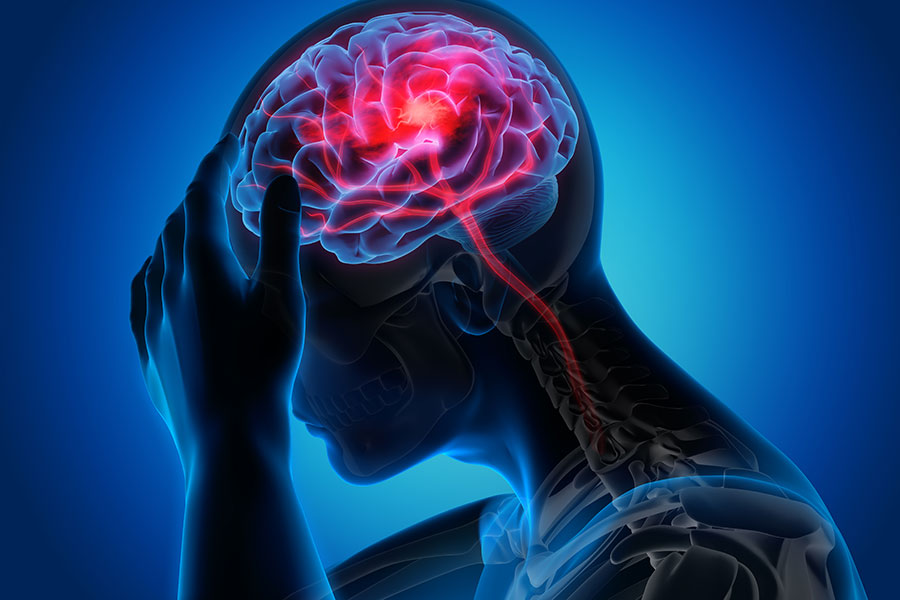One of the most difficult and complicated medical disorders to identify and treat is traumatic brain injury (TBI). They result from a sudden impact or jolt to the head, disrupting the brain’s normal function. While the severity of TBIs can vary from mild concussions to severe, life-threatening injuries, the consequences often ripple through individuals’ lives, affecting their health, relationships, and daily activities.
The Complexity Of TBI Causes
Traumatic brain injuries have many different causes, from violent incidents to accidents. Motor vehicle crashes remain a leading cause, particularly among young adults and older individuals. These accidents often involve rapid deceleration or impact, which can force the brain to collide against the skull. Similarly, falls, especially among the elderly and children, contribute significantly to traumatic brain Injury cases. The vulnerability of these groups highlights the importance of preventive measures, such as improving safety in homes and workplaces.
Sports and recreational activities also present risks, particularly in contact sports like football, boxing, or rugby. Although safety measures and protective gear have improved, the dynamic nature of these activities means injuries are still common. Furthermore, a sizable percentage of severe TBI cases are caused by violent acts, such as assaults or gunshot wounds. In certain contexts, blast injuries from explosions may also cause traumatic brain injuries, particularly in military settings.
Recognizing The Symptoms
Symptoms of TBI can be subtle, emerging immediately after the injury or developing over time. The signs often depend on the severity of the injury but generally fall into three categories: physical, cognitive, and emotional.
- Physical Symptoms: These can include headaches, nausea, fatigue, and dizziness. In more severe cases, loss of consciousness, seizures, or coordination issues may occur.
- Cognitive Symptoms: Memory loss, confusion, and difficulty concentrating are common cognitive impairments associated with TBI. Individuals may struggle with decision-making or experience a slowed ability to process information.
- Emotional Symptoms: Changes in mood or personality are frequently reported. Anxiety, irritability, depression, or sudden outbursts can significantly impact relationships and quality of life.
It’s essential to understand that even mild TBIs, such as concussions, can lead to lingering symptoms known as post-concussion syndrome. This condition underscores the need for early intervention and monitoring. Physicians play a critical role in diagnosing the severity of traumatic brain injuries and developing personalized treatment plans to aid recovery.
Exploring Treatment Options
Treating TBI requires a multidisciplinary approach tailored to the injury’s severity and the patient’s specific needs. Immediate medical attention is critical for moderate to severe TBIs, as they can cause swelling or bleeding in the brain, potentially leading to further damage if untreated.
- Acute Care: In the immediate aftermath of a TBI, stabilization is the primary goal. This may involve ensuring adequate oxygen supply, maintaining blood pressure, and performing emergency surgery to relieve pressure on the brain. MRIs and CT scans are examples of diagnostic imaging that are frequently used to determine the amount of damage.
- Rehabilitation: Long-term recovery often includes rehabilitation to help patients regain lost functions. Physical therapy may be utilized to enhance balance and motor abilities, depending on the state of the individual. Speech therapy can aid those with communication challenges, while occupational therapy helps patients relearn daily tasks and regain independence.
- Medications: In some cases, medications are prescribed to manage symptoms or prevent complications. These can include pain relievers, anti-anxiety drugs, or medications to prevent seizures.
- Psychological Support: The psychological and emotional effects of TBI must also be addressed. Support groups give people a sense of belonging and understanding, while counseling or therapy can help people deal with changes in mood, personality, or thought processes.
- Lifestyle Adjustments: Many patients benefit from adopting lifestyle changes that support brain health. Adequate rest, proper nutrition, and engaging in mentally stimulating activities can enhance recovery and overall well-being.
Prevention Is Key
While treatment options are advancing, prevention remains the most effective strategy against TBI. Brain injuries can be considerably decreased by taking easy steps like wearing seat belts, wearing helmets when riding or playing sports, and reducing the risk of falls at home. Promoting safety and prevention also heavily relies on educational programs and public awareness efforts. For comprehensive care and expert evaluation of Traumatic Brain Injuries, South Valley Neurology offers specialized services to support patients through diagnosis, treatment, and recovery.
Final Thoughts
For those who are directly impacted, as well as their relatives and caregivers, traumatic brain injuries can change their lives. Recognizing the causes and symptoms and understanding the available treatment options can help in managing the condition and improving outcomes. While prevention is essential, timely intervention and a comprehensive care plan are crucial in navigating the challenges posed by TBI.


